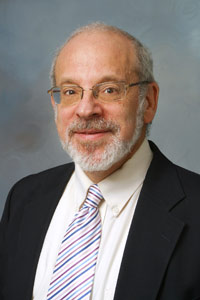Why Report on K–12 Education in Wisconsin? Listen to Alan Borsuk.
 Alan J. Borsuk has been the Law School’s senior fellow in law and public policy since fall 2009—call it 14 years. So, for a not wholly impertinent point, he has some time to go before replicating his 37 preceding years as a reporter and editor at the Milwaukee Journal and Milwaukee Journal Sentinel. In any event, during his time with us, he has kept his hand in the newspaper with the occasional—nay, frequent—column on K–12 education policy and practice in this region. Why?
Alan J. Borsuk has been the Law School’s senior fellow in law and public policy since fall 2009—call it 14 years. So, for a not wholly impertinent point, he has some time to go before replicating his 37 preceding years as a reporter and editor at the Milwaukee Journal and Milwaukee Journal Sentinel. In any event, during his time with us, he has kept his hand in the newspaper with the occasional—nay, frequent—column on K–12 education policy and practice in this region. Why?
Borsuk’s recent piece in The Grade, a nationwide online platform focused on journalism about education, will tell you. Here’s a flavor (the introduction):
I crossed paths with a former member of the Milwaukee school board a while ago.
He had moved on from the school scene, but I was still writing about K-12 education, as I had across more than 50 years.
“Do you feel like you’re living ‘Groundhog Day’?” he asked me, referring to the movie in which the protagonist repeats the same day over and over.
“Yes. All the time,” I told him.
At that time, I often felt like I was writing pieces I’d written so many times before.
But I was still doing it.
Why? Because damn it, it’s important.
That’s why I’m still at it all these years later — and why I decided to make what might be my last big project as a journalist a multipart series on longstanding problems in how most schools teach kids to read.
Education coverage should be energetic and powerful. I hope that showed in the recent pieces I wrote about literacy. But I also know there is more I could and should do.
There is more all of us in education journalism could and should do.
As with Borsuk’s work more generally, the whole thing is well worth a read. Find it here.
